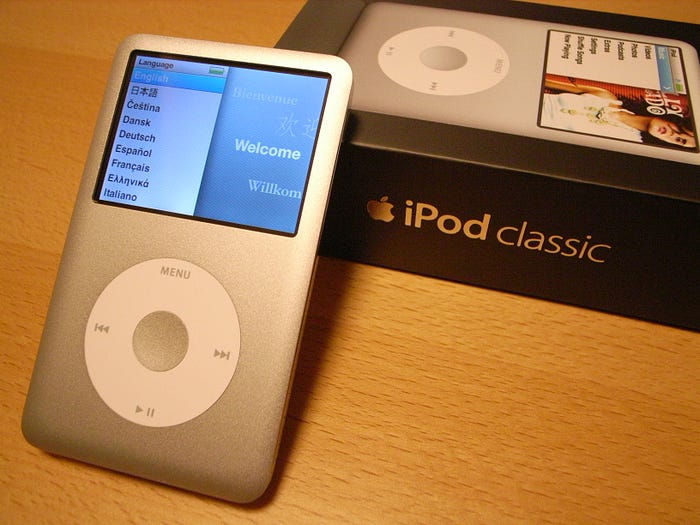The iPod Classic’s replacement is the iPod Classic

It’s over four years since Apple discontinued its much-loved iPod Classic and in that time no standout high-capacity portable music player has emerged in its place.
When its demise was first announced opportunists snatched up the final stock of 160gb models and offered them for resale at an inflated price, knowing something Apple did not; there was still a demand for these products.
At the time, sourcing of hardware, notably, the hard-drive, was given as the reason the Classic was given the chop.
As a long-time owner of a Classic that had moved from the 30gb and 80gb versions to the final 160gb edition, I scoured the internet for news of newcomers in its place.
While many people have since been funnelled into a subscription service like Spotify, Apple Music or Pandora (RIP), I was steadfast in my desire to keep my library offline and in my pocket.
No single streaming service can match my own collection (before we even get to bootlegs and rarities) and I’m the kind of person who is happier keeping those things in my pocket than in the cloud for those long trips when you’re out of service for hours at a time.
I’ve been scoffed at for carrying around an antique, but its hard to argue against pragmatism of a specialist device that is still compact for its function.
I knew I could not hold out forever, though. Computer hardware fails, and my iPod had already been through its share of scares.
That was until the inevitable happened.
I can’t explain what went first, but somewhere along the way there was a catastrophic failure. After eight years of solid service, numerous trips overseas, countless bumps and playback measured in months, my iPod no longer turned on. The hard drive and battery were as useless as the team that originally decided the product’s days were done.
In my time of need had a replacement device arisen from the market to be embraced by my fellow musical anoraks?
No.
Was there a solution?
Yes!
What has emerged in recent years in conjunction with lowering cost of hardware is a raft of simple mods that not just breathe new life into old iPods, but add some future-proofing for good measure.
For far less than the cost of the smallest capacity iPod Touch and the Classic’s final RRP, I could order a new and compatible SSD online, upping the capacity, lowering the weight and power usage and extending the life of my iPod.
For those not blessed with confidence in electronics or a decent set of tools, an even easier solution turned out to be taking it to a local phone repair shop that specialised in these types of upgrades.
For $320(AUD) mine received a 256gb SSD, a new battery and a six-month warranty. That’s also over $100 cheaper than the 128gb iPod touch.
I’m not alone either, as I picked up my device I couldn’t help but notice a table loaded with iPod Classics ready to be posted back to owners following the upgrades.
While I’m pleased to have my device back, working and ready to take it into the next few years, it caused a contemplative pause on how we treat our devices.
We replace working phones every two years for billing reasons. When my television broke it was cheaper to buy a new one than to have it repaired. There’s something strange about how we think about the life cycle of our technology. Did the iPod Classic’s singular function as a high-capacity music player exempt it from this rule?
Repairing over replacing feels like an old-fashioned idea when technology moves so fast.
And while I was disappointed the market had not served up anything better than the tried and trusted iPod, I got what I wanted without lightening my wallet too much.
Maybe there’s a bigger lesson in there.
